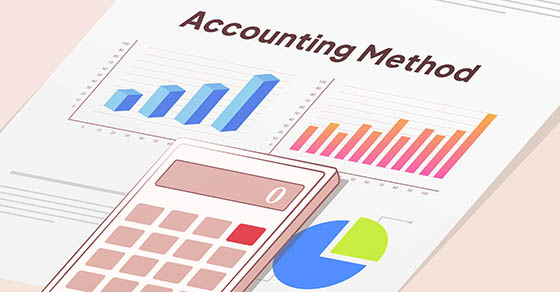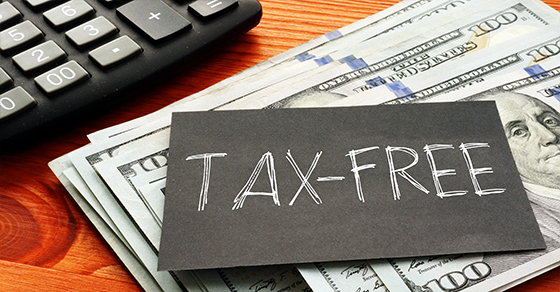Working remotely is convenient, but it may have tax consequences
- ByPolk & Associates
- Sep, 11, 2024
- All News & Information
- Comments Off on Working remotely is convenient, but it may have tax consequences
These days, many employees work remotely. While there are lots of advantages, it may also lead to some tax surprises, especially if a job crosses state lines. If you live in one state and work remotely for an employer in another state, you may need to file income tax returns in both states. This could result in increased (or even double) taxation. Do you get any tax breaks for working remotely? Under current law, employees generally can’t deduct unreimbursed job-related expenses through 2025. Remote workers also aren’t currently eligible for the home office deduction either. That deduction is generally limited to self-employed business owners. Contact us with questions about your situation.
Cash or accrual accounting: What’s best for tax purposes?
- ByPolk & Associates
- Sep, 11, 2024
- All News & Information
- Comments Off on Cash or accrual accounting: What’s best for tax purposes?
Many businesses have a choice between using the cash or accrual method of accounting for tax purposes. The cash method often provides significant tax benefits for businesses that qualify, but some may be better off using the accrual method. Cash-basis businesses recognize income when it’s received and deduct expenses when they’re paid, so they have greater control over the timing of income and deductions. In contrast, accrual-basis businesses recognize income when it’s earned and deduct expenses when they’re incurred, regardless of the timing of cash receipts or payments. That means they have less flexibility to time income or expenses. We can help you evaluate the most beneficial approach.
Business owners sometimes need to switch successors
- ByPolk & Associates
- Sep, 11, 2024
- All News & Information
- Comments Off on Business owners sometimes need to switch successors
For many business owners, choosing a successor is a difficult task. What’s worse, many owners’ initial picks for successor can turn out to be dubious choices. If you find yourself in this situation, don’t panic. First, discuss the matter with objective parties such as your professional advisors and trusted family members or colleagues. If you then decide to stick with your successor, talk about your concerns with the individual and look for ways to address what’s troubling you. If you determine that you must pick someone new, tell your initial successor as soon as possible and explain why. Then, review and improve your succession planning process to avoid making the same mistake twice.
Reasons an LLC might be the ideal choice for your small to medium-size business
- ByPolk & Associates
- Sep, 11, 2024
- All News & Information
- Comments Off on Reasons an LLC might be the ideal choice for your small to medium-size business
For many businesses, a limited liability company (LLC) is an enticing choice. It can be structured to resemble a corporation for owner liability purposes and a partnership for federal tax purposes. This may provide the owners with several advantages. Like corporate shareholders, LLC owners or members generally aren’t liable for business debts except to the extent of their investment. Plus, there may be tax benefits. For example, earnings aren’t subject to entity-level tax. Instead, they flow through to owners in proportion to their interests in the profits. They’re reported on the owners’ individual returns and taxed only once. Contact us to discuss whether an LLC is the best option for you.
Brand audits can help companies in a variety of ways
- ByPolk & Associates
- Sep, 11, 2024
- All News & Information
- Comments Off on Brand audits can help companies in a variety of ways
A strong brand is critical to differentiating your business from competitors and can help boost revenue. A weaker brand can reduce sales opportunities and stifle growth. But brand strength isn’t easy to measure. That’s why many companies conduct brand audits. These are formal reviews of brand efficacy and market standing. There are various ways to conduct a brand audit. But most include gathering and analyzing readily available business information such as sales data, website analytics and social media interactions. They also may involve brand-focused customer and employee surveys. Ultimately, done properly, a brand audit can help with marketing, strategic planning and even fraud prevention.
Are you liable for two additional taxes on your income?
- ByPolk & Associates
- Sep, 11, 2024
- All News & Information
- Comments Off on Are you liable for two additional taxes on your income?
High-income taxpayers may face two extra taxes: the 3.8% net investment income tax (NIIT) and a 0.9% additional Medicare tax. On top of income tax, the NIIT applies on net investment income. It affects taxpayers with adjusted gross incomes exceeding $250,000 for joint filers, $200,000 for singles and heads of household, and $125,000 for married people filing separately. Income subject to the NIIT includes interest, dividends, annuities, royalties, rents and net gains from property sales. Wage income and income from an active trade or business aren’t included. However, passive business income is subject to the NIIT. Contact us to discuss extra taxes and how their impact may be reduced.
6 key elements of a business budget
- ByPolk & Associates
- Sep, 11, 2024
- All News & Information
- Comments Off on 6 key elements of a business budget
Budgeting is essential for businesses. Here are six key elements of a budget and some best practices to consider: 1) Current overview; compose an up-to-date description of your business, its market and impactful economic factors. 2) Budget rationale; explain how the budget supports your mission, vision and goals. 3) Line items; be sure you’re including all expenditures. 4) Performance metrics; clarify how you’ll determine whether you’re making, breaking or beating the budget. 5) Supporting appendices; discuss whether to include additional information. 6) Executive summary; this brief introduction can prove helpful to internal users, as well as lenders and investors. Contact us for more info.
Navigating tax complexities: Craft partnership agreements and LLC operating agreements with precision
- ByPolk & Associates
- Sep, 11, 2024
- All News & Information
- Comments Off on Navigating tax complexities: Craft partnership agreements and LLC operating agreements with precision
Partnerships are often used for business activities. So are multi-member LLCs that are treated as partnerships for tax purposes. A major reason is that these entities offer federal income tax advantages, the most important of which is pass-through taxation. They also must follow special, sometimes complicated federal tax rules. A partnership is governed by a partnership agreement, which specifies the rights and obligations of the entity and its partners. Similarly, an LLC is governed by an operating agreement that lays out the rights and obligations of the entity and its members. These governing documents should address certain tax issues. Contact us to be involved in the creation process.
Understanding the $7,500 federal tax credit for buying an electric vehicle
- ByPolk & Associates
- Sep, 11, 2024
- All News & Information
- Comments Off on Understanding the $7,500 federal tax credit for buying an electric vehicle
An eligible taxpayer can claim a credit of up to $7,500 for a new clean vehicle. These are qualified plug-in electric vehicles (EVs) and fuel cell vehicles. An EV must meet certain requirements, and there are income limits to qualify. For example, the manufacturer suggested retail price can’t exceed $80,000 for vans, SUVs and pickups or $55,000 for other vehicles. To qualify for the credit, your modified adjusted gross income can’t exceed $300,000 for married joint filers, $225,000 for heads of households or $150,000 for others. Beginning in 2024, you can opt to transfer the credit to an eligible dealer when you buy, effectively reducing the vehicle’s purchase price by the credit amount.
6 tax-free income opportunities
- ByPolk & Associates
- Sep, 11, 2024
- All News & Information
- Comments Off on 6 tax-free income opportunities
There are ways to collect income and gains free from federal income tax. For example, if you receive a gift or inheritance, the amount generally isn’t taxable. And unlike withdrawals from traditional IRAs, qualified Roth IRA withdrawals are free from federal income tax. A qualified withdrawal is one taken after you reach age 59½ and have had a Roth IRA open for over five years, or you are disabled or deceased. Also, you can have a decent income and still owe 0% for long-term gains and dividends. In 2024, single taxpayers can have up to $47,025 in taxable income ($94,050 for married couples filing jointly) and be in the 0% bracket. Contact us. Advance planning may lead to better tax results.










